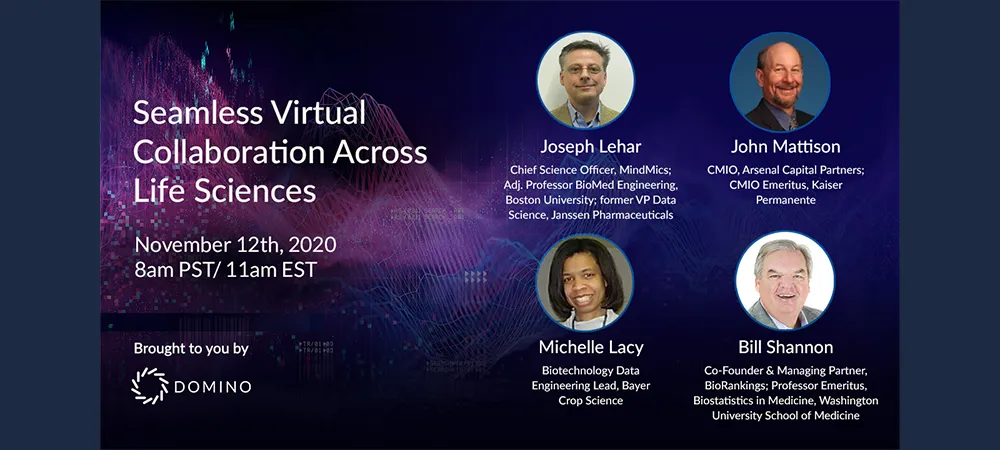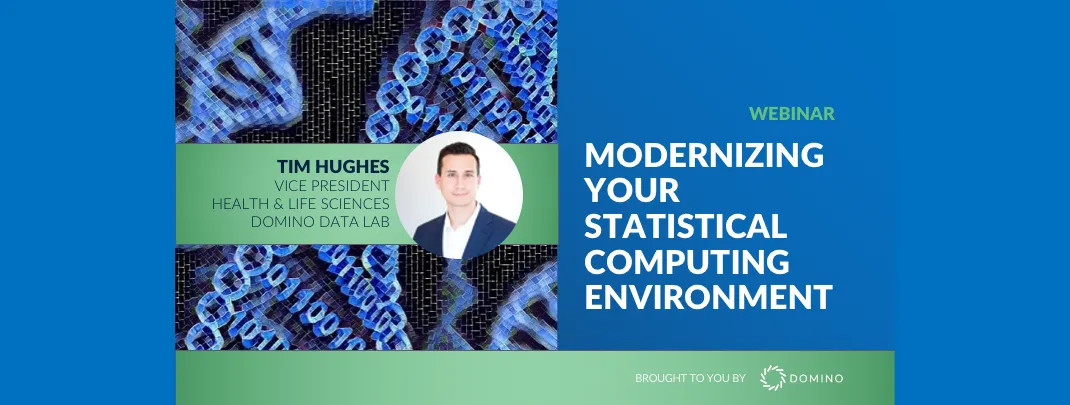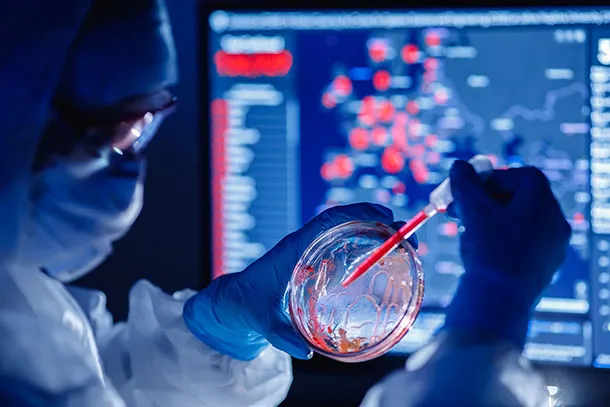4 of the Top 10 Pharmaceutical Companies and 2 of the 5 Largest Health Insurers Run on Domino
Life sciences companies require extensive collaboration across different teams and full reproducibility of data science work to meet regulation and audit needs. Models must be constantly tracked, retrained, and iterated on to reflect the constant changes that lead to model drift.
“Domino made it easier for users across the global enterprise, using different tools and with varied backgrounds and skill sets, to work with each other, leverage past work, and collaborate quickly.”
— Naveen Singla, Data Science Center of Excellence lead at Bayer
Webinar

Seamless Virtual Collaboration Across Life Sciences
Life sciences firms are under more pressure than ever to develop and deliver new medical treatments and agricultural improvements. The best innovations come from collaborative efforts between pharma, agriculture, academia, biotech, healthcare providers, payers and others, but getting stakeholders across all of these groups aligned in the midst of competing priorities, technologies, ways of working, security restrictions, and research practices is a huge challenge. And the world we’re operating in today is different than anything we’ve experienced before. Every person on every team in every organization is working remotely; communication and workflow challenges have amplified.
In this virtual roundtable, we’ll engage leaders across the life sciences domain to capture their advice, lessons learned, and practical takeaways. Join us to hear from:
- Joseph Lehar, Chief Science Officer, MindMics; Adj. Professor BioMed Engineering, Boston University; former VP Data Science, Janssen Pharmaceuticals
- John Mattison, CMIO, Arsenal Capital Partners; CMIO Emeritus, Kaiser Permanente
- Michelle Lacy, Biotechnology Data Engineering Lead, Bayer Crop Science
- Bill Shannon, Co-Founder & Managing Partner, BioRankings; Professor Emeritus, Biostatistics in Medicine, Washington University School of Medicine
Today’s high-performing teams are thinking differently and finding new ways of working. They’re embracing technologies that facilitate collaboration across teams, time zones and company borders. Learn from them during this live session on November 12, which will include time for Q&A.
Challenges

IP Protection
IP is the most important asset for life sciences companies, which can be at risk when key personnel leave. There's increased pressure to migrate to central, cloud-based environments that reduce key-man risk, but without sacrificing security.

Global Teams
Collaboration among large, distributed research teams with varying skills and tool preferences is complicated.

Regulations
Dealing with sensitive PII requires regulation compliance, full visibility into project contexts, and reproducibility of past experiments.
Benefits for Life Sciences Companies

Centralized Platform
Avoid losing valuable IP by putting everything related to life sciences research—code, data, versions, and results—into one centralized platform while using a wide range of tools and compute infrastructures.

Seamless Collaboration
Foster collaboration among biostatisticians, chemists, bioinformaticians, project managers, and other stakeholders to accelerate genomics research and drug discovery.

Reproducible Research
Test different scenarios through fully reproducible research. Protect sensitive proprietary data while leveraging the latest data science tools to accelerate research development and model delivery.
Trusted Throughout the Life Sciences Industry
Four of the top 10 pharmaceutical companies and two of the five largest health insurers run their research on Domino. Domino lets research and analytics teams get insights faster, produce better risk models, meet auditing requirements, and reproduce past work. They use it for developing and testing new medical treatments, and for building and deploying API-accessible models that will drive smarter pricing, loss prevention, claims automation, customer value calculations, and more.




Seer examines thousands of cancer patients in a clinical trial for better insights and predictions.
Climate Corp scales data science to power precision agriculture.
Solutions by Role
Solutions by Industry
- Financial Services
- Insurance
- Media & Technology
- Health & Life Sciences
- Manufacturing
- Retail, eCommerce & Consumer Products



